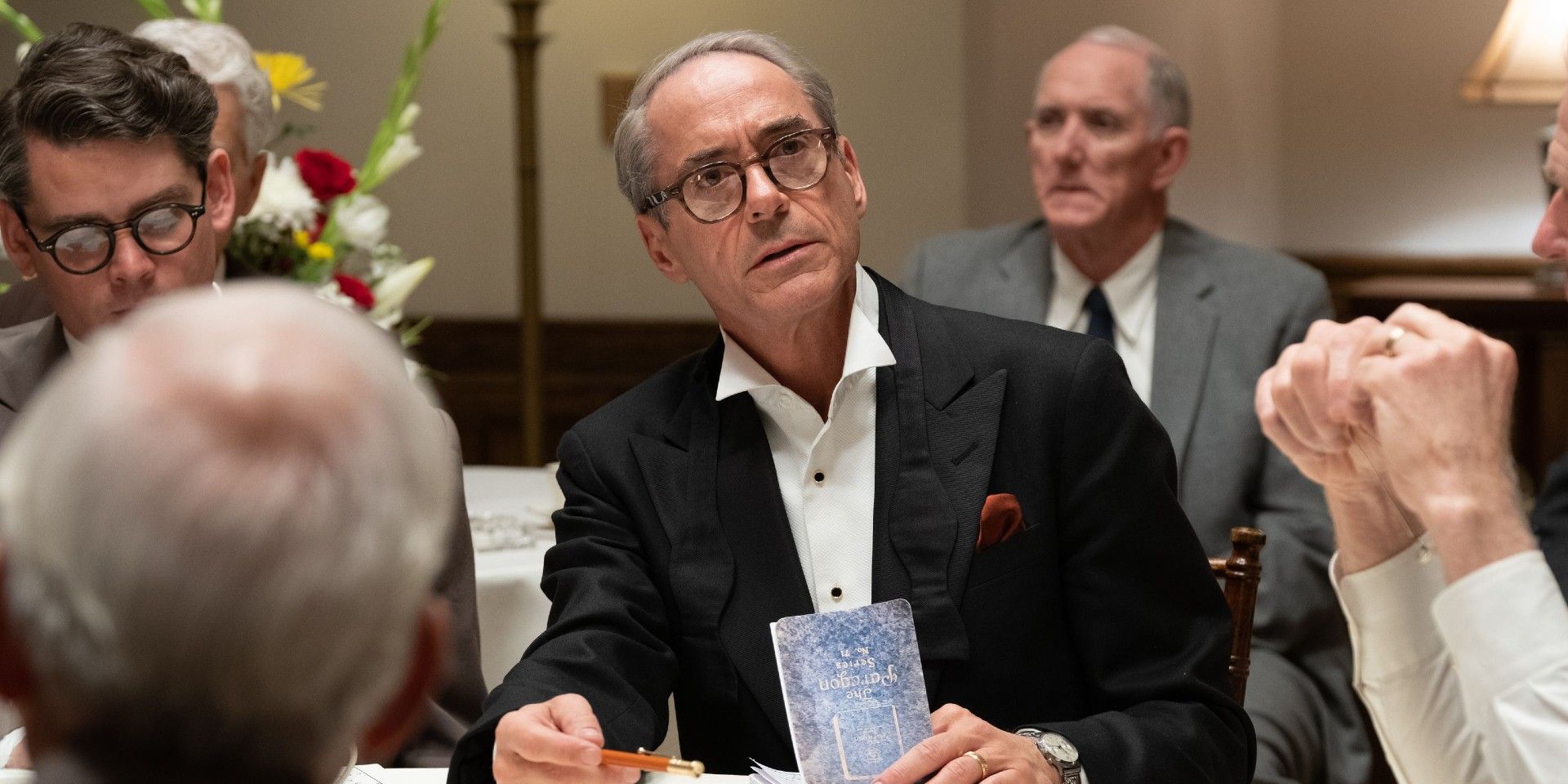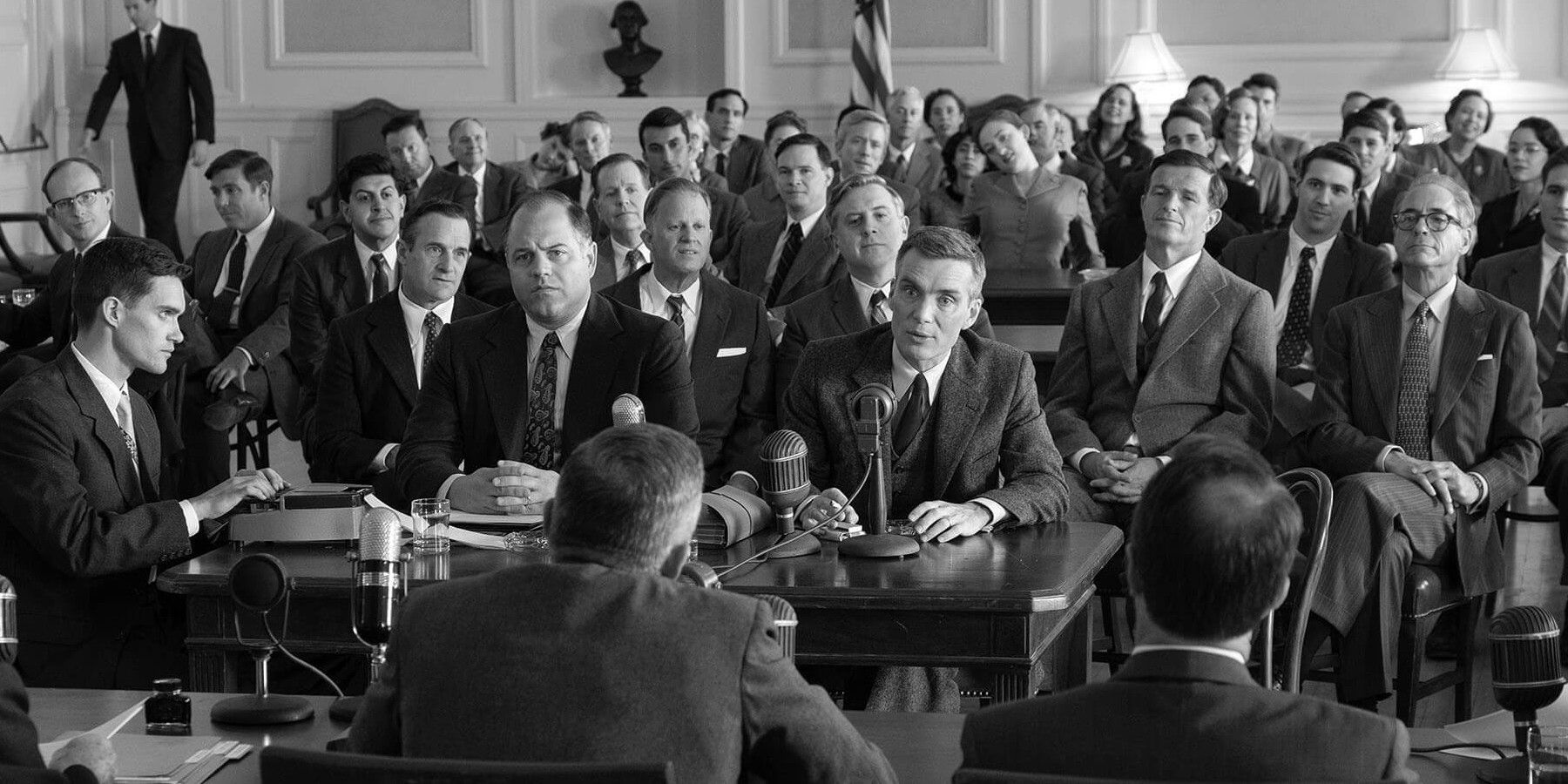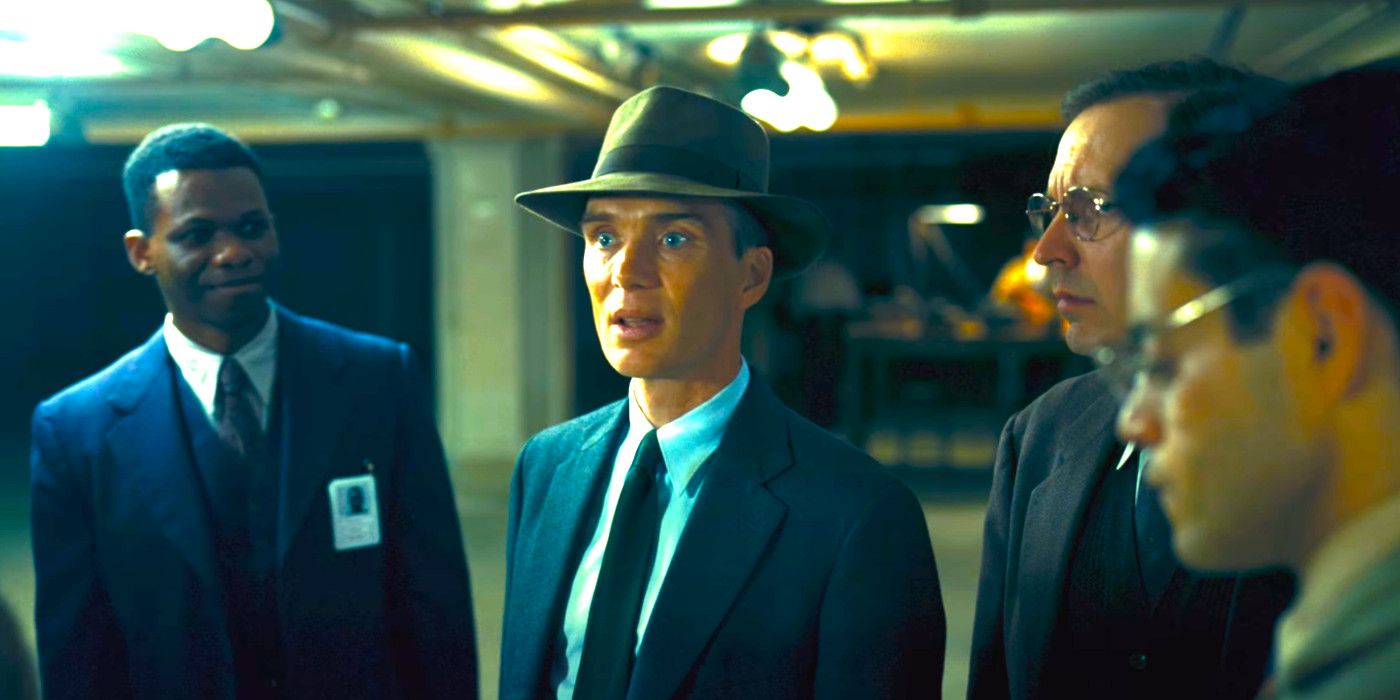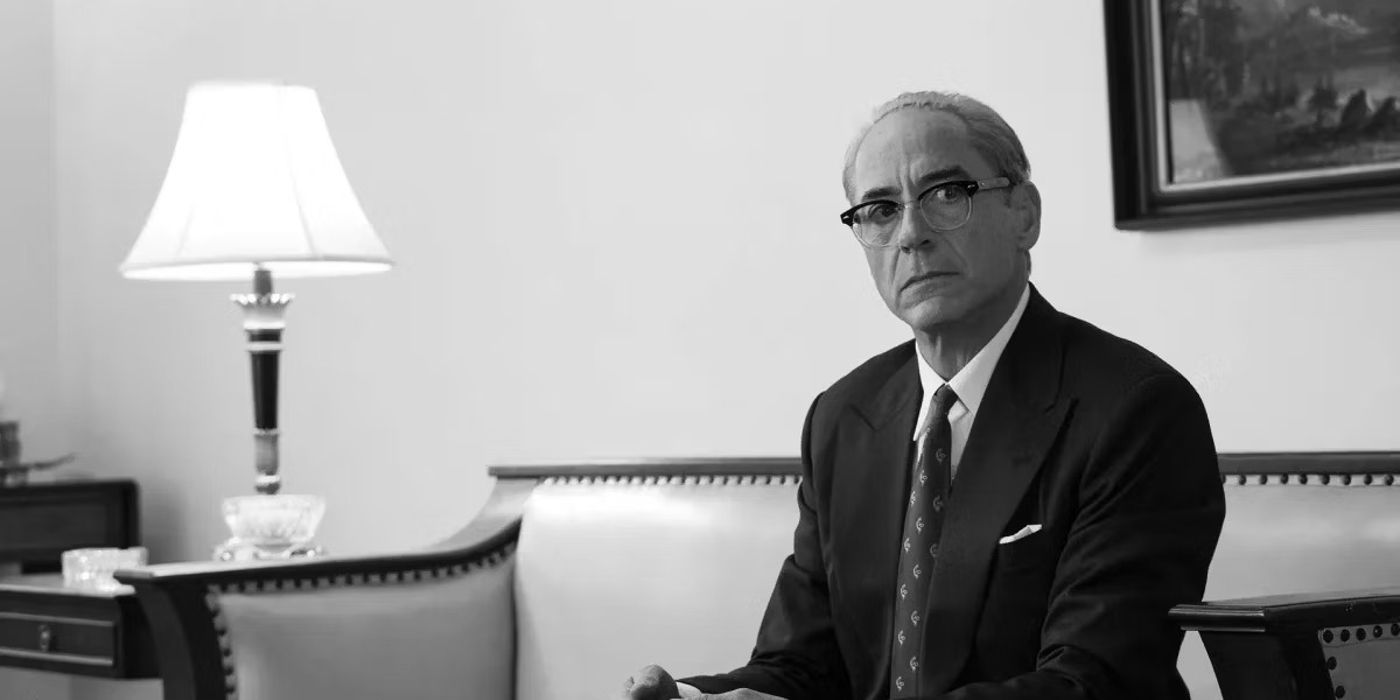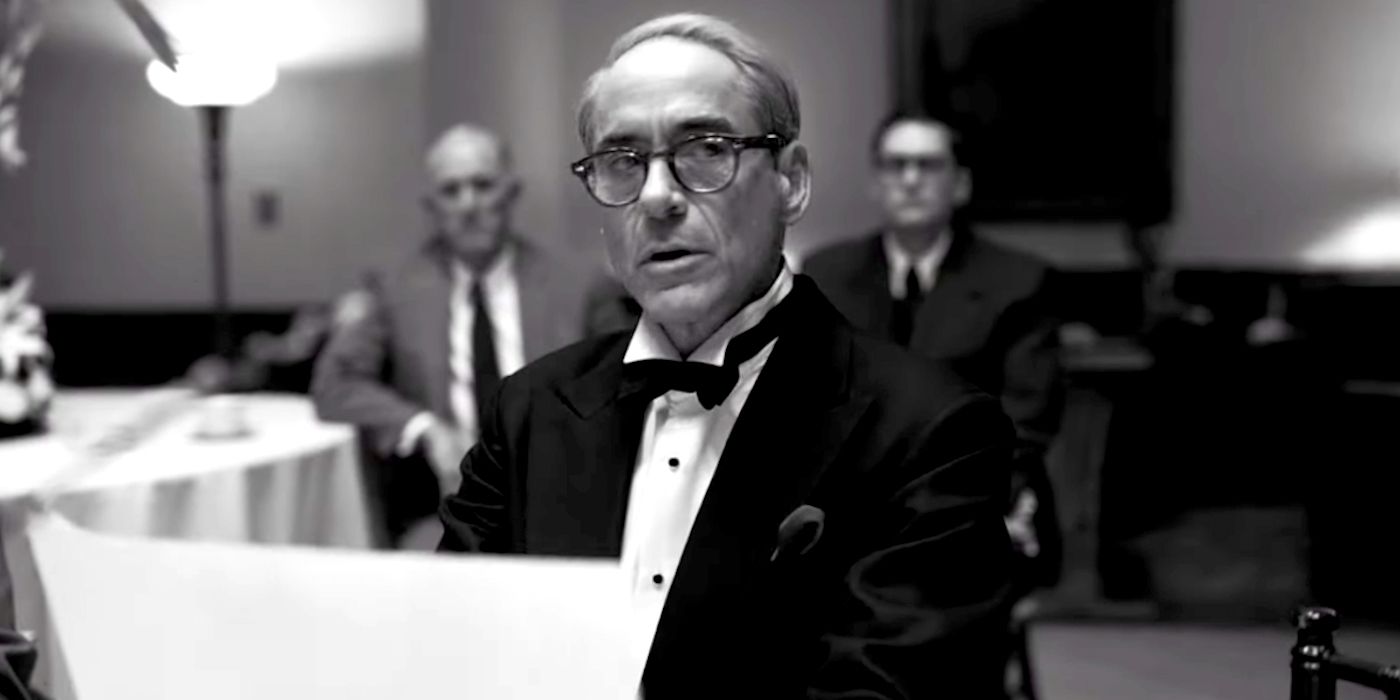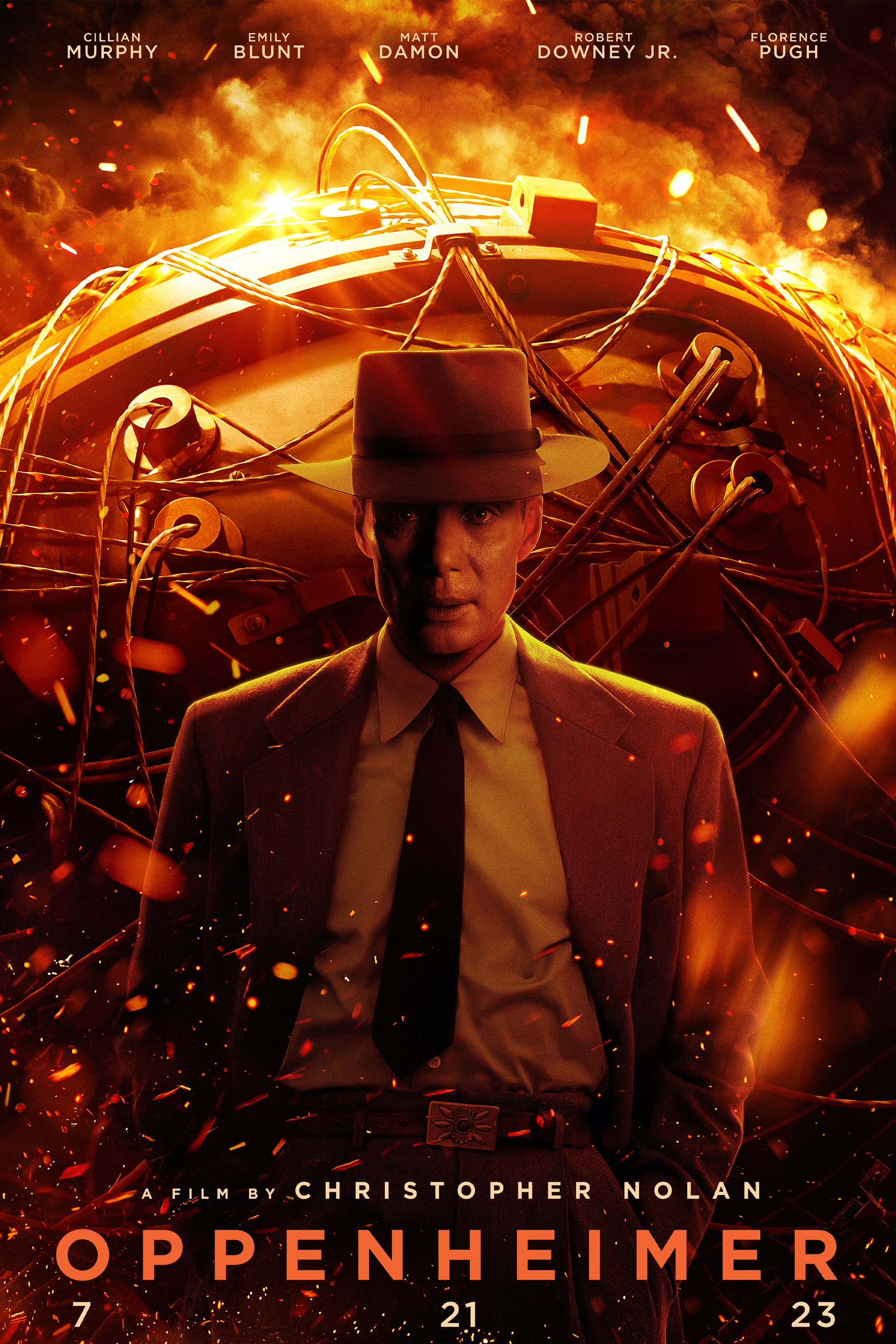Summary
- The feud between Lewis Strauss and J. Robert Oppenheimer was a significant element in their lives with lasting consequences for both parties.
- The Strauss/Oppenheimer feud plays a prominent role in Christopher Nolan’s “Oppenheimer” film, affecting their careers and personal lives.
- Lewis Strauss’s hatred of Oppenheimer eventually backfired, leading to his failed cabinet appointment and tarnished reputation.
While Oppenheimer depicts many different parts of the famous physicist’s life, from his romances and his time at Los Alamos to his ties with Communism and his later political activism, there is one vital part of the film that is a crux which the movie relies on from the beginning to the end: the feud between Lewis Strauss and J. Robert Oppenheimer. Though this rivalry could be seen as overdramatized for the sake of the film, the reality is that this strained relationship truly did happen in real life, and did have major consequences for both parties. Ultimately, Strauss and Oppenheimer’s feud continued to hurt them a decade after it started.
The Strauss/Oppenheimer feud is something of a B-plot in Christopher Nolan’s Oppenheimer that becomes more and more relevant as the film goes on. In Oppenheimer’s cast, J. Robert Oppenheimer is played by Cillian Murphy, while Lewis Strauss is portrayed by Robert Downy Jr. According to the film, the two meet at Princeton and have an immediate dislike for one another. Then, a disagreement soon after only serves to make their enmity worse. This leads to Lewis Strauss actively targeting Oppenheimer later in his life via the intense AEC hearing. And finally, at the end of Oppenheimer, Strauss’ hatred of Oppenheimer prevents him from getting a prestigious job.
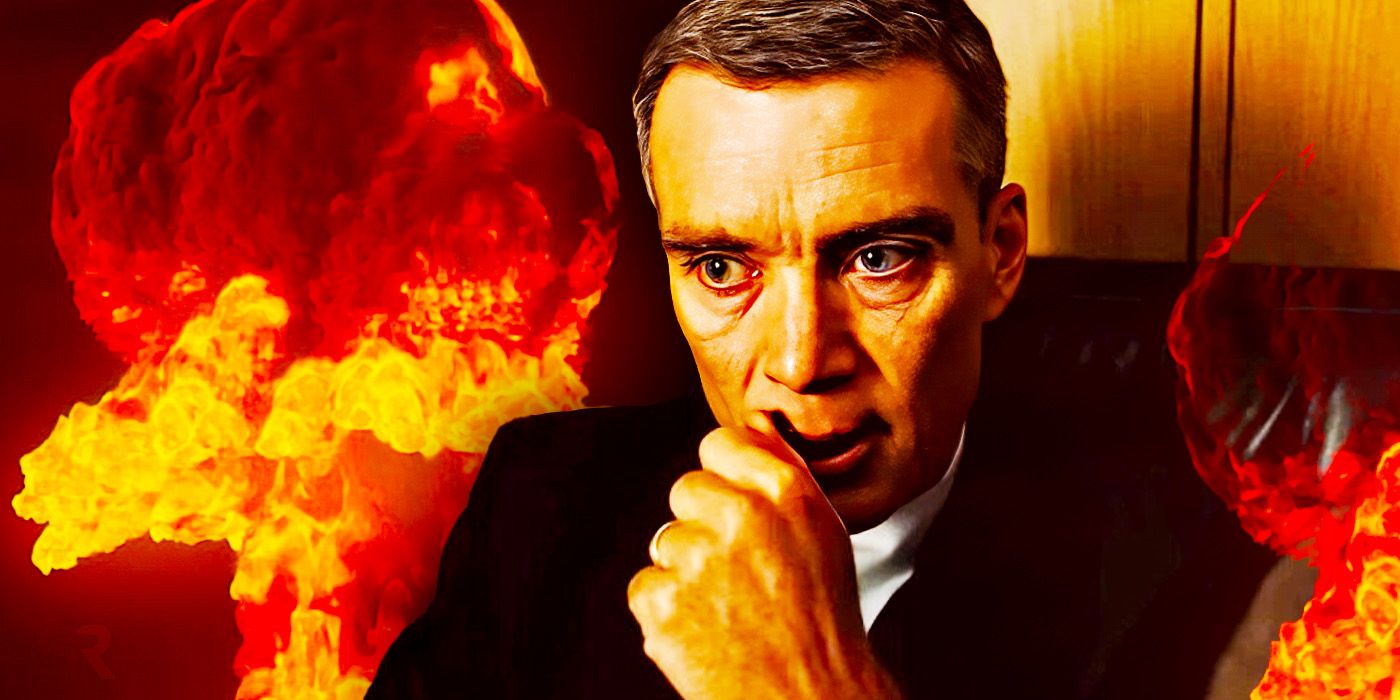
How To Watch Oppenheimer
Oppenheimer is one of 2023’s biggest movies, smashing box office expectations. Here is everything you need to know about how to watch the film.
Lewis Strauss & Oppenheimer’s Early Working Relationship Explained
Strauss Began Hating Oppenheimer 2 Years After World War II
The rivalry between Strauss and Oppenheimer began in 1947, two years after Oppenheimer had created the atomic bomb, and two years after the bomb had been used to destroy Nagasaki and Hiroshima, which controversially wasn’t shown in Oppenheimer. At that point, Oppenheimer’s involvement in the Manhattan Project had made him a national hero and a major influence on nuclear power and national security. Due to his popularity, Lewis Strauss, a trustee of the Institute for Advanced Study at Princeton, presented Oppenheimer with the opportunity to become the institute’s director. Notably, Strauss had also been considered for the position, but Oppenheimer won against him.
[Strauss] looked down on Oppenheimer for not being more public about his Jewish background, especially considering his success in his field.
This lead Strauss to immediately dislike Oppenheimer, but their differing politics also played a role. Strauss was a firm Republican, while Oppenheimer had more liberal views and Communist ties. Furthermore, in terms of certain decisions on nuclear policy, the two were opposed as well. Oppenheimer was against the creation of the hydrogen bomb and believed in complete openness about the U.S.’s nuclear weapons. Meanwhile, Strauss supported the hydrogen bomb and the development of thermonuclear weapons and thought that openness would only hurt the United States.
Strauss & Oppenheimer’s Feud Began In 1947 Due To The AEC
Oppenheimer Overpowered Strauss During An AEC Discussion
Strauss and Oppenheimer’s feud was exacerbated later that same year because of a disagreement in 1947. Aside from working at Princeton, they were both part of the General Advisory Committee (GAC) of senior atomic scientists. Oppenheimer was the group’s chair, and it existed under the rule of the AEC. During a discussion on the safety of transporting radioisotopes for medical purposes, Strauss was overpowered by Oppenheimer and the committee. As a result, Strauss held a grudge against Oppenheimer, while Oppenheimer and the other scientists looked down on Strauss for his views.
|
Important Moments In Oppenheimer & Strauss’ Feud |
Date |
|---|---|
|
Oppenheimer becomes the director of the Institute for Advanced Study at Princeton instead of Strauss |
1947 |
|
Oppenheimer overpowers Strauss during an AEC discussion on the safety of transporting radioisotopes |
1947 |
|
Oppenheimer contradicts and humiliates Strauss at a Joint Committee on Atomic Energy public heating |
1949 |
|
Oppenheimer’s AEC hearing |
1954 |
|
The Senate refuses Strauss’ Secretary of Commerce run |
1959 |
|
Oppenheimer dies |
1967 |
|
Strauss dies |
1974 |
Oppenheimer Humiliated Lewis Strauss In 1949
Strauss Never Forgave Oppenheimer For Making Him Look Bad At A Public Hearing
The ultimate tipping point for Lewis Strauss and J. Robert Oppenheimer occurred two years after the men had met in 1949. The radioisotope problem had still not been settled between Strauss and the GAC, and therefore, Oppenheimer was called to speak at a public hearing on the issue before the Joint Committee on Atomic Energy. This hearing was orchestrated by Strauss because of how the GAC had overruled him in 1947, which is an interesting piece of foreshadowing for later events between Strauss and Oppenheimer. Ultimately, the hearing led to Strauss’ utter embarrassment.
When asked about the importance of exporting radioisotopes, Oppenheimer said the following:
”
My own rating of the importance of isotopes in this broad sense is that they are far less important than electronic devices but far more important than, let us say, vitamins, somewhere in between
.”
Oppenheimer’s witty point that radioisotopes are not as dangerous as Strauss claimed them to be made Strauss look like a fool at the public hearing. As a result, Strauss never forgave Oppenheimer and attempted to ruin him for good.
In Christopher Nolan’s
Oppenheimer,
the word “vitamins” in the above quote is changed to “sandwich.” Presumably, this change was made to make the remark seem even more flippant against Strauss.
Strauss Reportedly Held Personal Vendettas Against Oppenheimer For His Behavior
Strauss Didn’t Agree With Many Of Oppenheimer’s Actions (Including His Infidelity)
Though this isn’t necessarily explored in Christopher Nolan’s Oppenheimer, Strauss had other reasons for hating J. Robert Oppenheimer that went beyond their face-to-face conflicts. In particular, Strauss resented Oppenheimer for his lifestyle and choices. Strauss took pride in his Jewish heritage and his ability to rise through the ranks of the U.S. government despite intense anti-semitism. In turn, he looked down on Oppenheimer for not being more public about his Jewish background, especially considering his success in his field. Furthermore, Strauss, played by Oscar-winning Robert Downey Jr. in Oppenheimer, disliked Oppenheimer’s infidelity to his wife and resented him.
Strauss’ Hatred Led To Oppenheimer’s Security Hearing
Strauss Got His Revenge In 1954
Ultimately, Lewis Strauss got his revenge against Oppenheimer. During the early 1950s, Strauss used his position as AEC chairman to keep tabs on Oppenheimer. He asked the FBI director J. Edgar Hoover to track Oppenheimer’s movements in search of disloyalty, which included illegal tapping of his phones. In 1953, a letter was written to the FBI alleging Oppenheimer was a Soviet spy. As a result, Oppenheimer was forced to undergo an AEC hearing in 1954, which stripped him of his security clearance. The hearing was completely orchestrated by Strauss, who did everything he could to render Oppenheimer’s defense useless.
How Lewis Strauss’ Feud With Oppenheimer Hurt His Career
Others Judged Strauss For His Hatred Towards Oppenheimer
Although Strauss successfully rid Oppenheimer of his access to the government’s atomic work, his hatred of Oppenheimer eventually backfired. In 1958, Strauss entered the running to become the Secretary of Commerce. Though he could have been reappointed as the chairman of the AEC, the Oppenheimer affair had made Strauss unpopular among scientists.
Though
Oppenheimer
paints a dramatic and clean picture of Strauss and Oppenheimer’s relationship, real life was likely much messier.
However, as it turned out, this unpopularity translated to the U.S. government as well. Strauss’ manipulation of Oppenheimer’s AEC hearing was found out among other deceitful actions, and therefore, Strauss’ cabinet appointment failed. This courtroom scene is one of the most climactic in the R-rated movie Oppenheimer, and considering the long history behind it, it is for good reason.
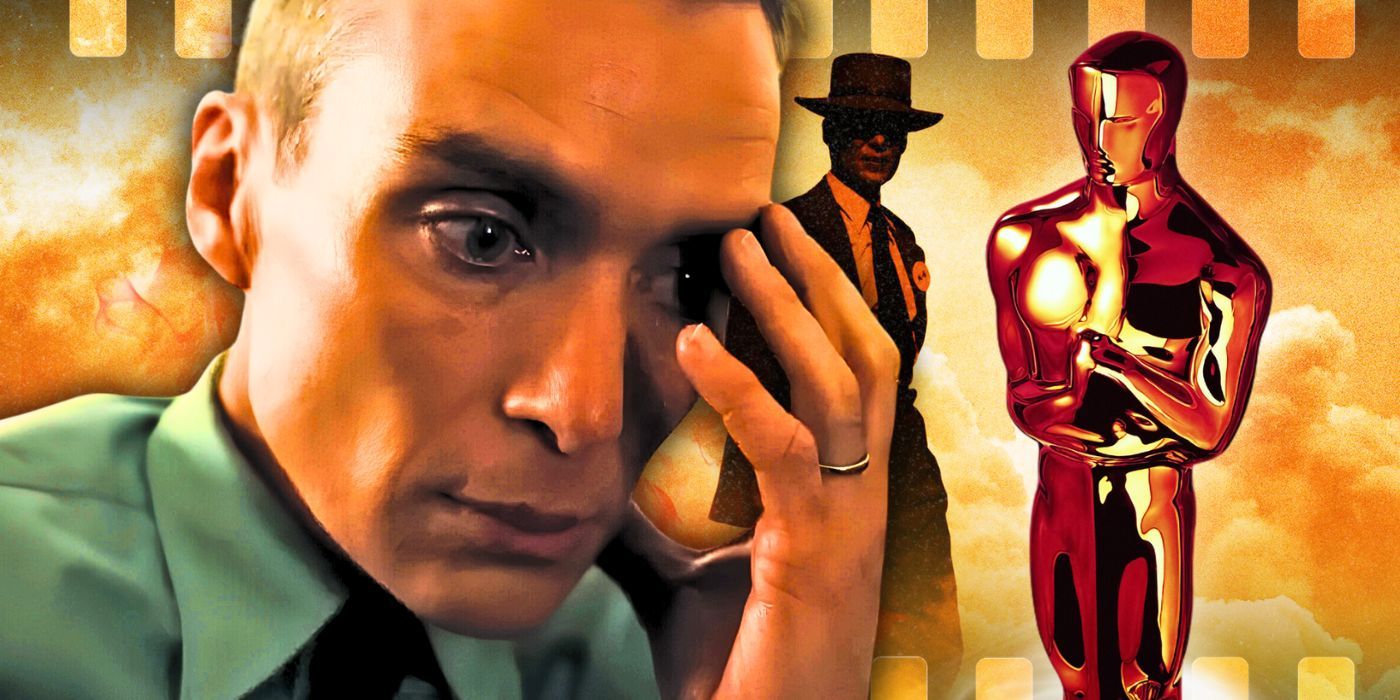
How Each Of Christopher Nolan’s 11 Other Movies Prepared For Him For His Oppenheimer Oscar Win
Each one of Christopher Nolan’s movies have helped him develop the skills that would eventually make Oppenheimer such a massive success.
Did Lewis Strauss Regret Hating Oppenheimer?
Strauss Never Expressed Remorse For Loathing Oppenheimer
Nearly 80 years after Lewis Strauss and J. Robert Oppenheimer first met, it is unclear whether Strauss regretted his hatred of Oppenheimer. On one hand, Strauss may have had regrets after his hatred got in the way of him receiving the role of Secretary of Commerce. After that debacle, he may have had regrets and found peace. However, it is more likely that Strauss continued to dislike Oppenheimer until the end. Though Oppenheimer paints a dramatic and clean picture of Strauss and Oppenheimer’s relationship, real life was likely much messier. In this way, Strauss probably never forgave and never forgot.
What Happened to Lewis Strauss After Oppenheimer’s 1954 Security Hearing
Strauss Died In 1974
After Oppenheimer’s 1954 AEC hearing, Strauss failed to become the Secretary of Commerce due to his manipulation of the security hearing and growing resentment towards him among others in the government. It was only the eighteenth time in U.S. history that the Senate refused a Cabinet appointee. So, Strauss retired from government and resigned to a quiet life on his farm (the Brandy Rock Farm in Brandy Station, Virginia). About ten years after the events of Oppenheimer, Strauss died at the age of lymphosarcoma on January 21, 1974, at the age of 77, while Oppenheimer died seven years earlier.
